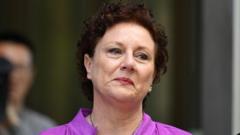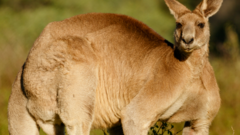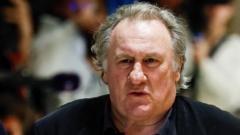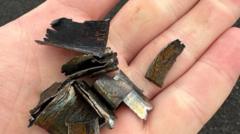Kathleen Folbigg, once labeled "Australia's worst mother," has been offered A$2 million in compensation for her wrongful imprisonment, a figure legal experts claim is grossly inadequate compared to the suffering she endured. After a judicial review pointed to genetic causes for her children's deaths, many argue she deserves significantly more than the current offer.
Legal Experts Decry Insufficient Compensation Offer for Wrongfully Imprisoned Mother

Legal Experts Decry Insufficient Compensation Offer for Wrongfully Imprisoned Mother
Kathleen Folbigg, released after 20 years for the deaths of her children, offered just A$2 million, far below expected amounts, stirring controversy.
Kathleen Folbigg, whose wrongful conviction has been termed one of Australia’s most profound miscarriages of justice, has been offered A$2 million (approx. £975,580, $1.3 million) in compensation following two decades of imprisonment. Folbigg was convicted in 2003 for the deaths of her four infants, but a 2023 judicial review dismantled the basis of her conviction, suggesting they died from an undiagnosed genetic condition.
Legal experts had hoped her payout would reflect the severity of her suffering, with some estimating it could exceed A$10 million, potentially making it one of the largest compensation sums in Australian legal history. However, her lawyer, Rhanee Rego, expressed deep disappointment over the government's offer, labeling it “profoundly unfair and unjust.” She further stated, “The payment is a moral affront – woefully inadequate and ethically indefensible,” indicating that the system has failed Folbigg once more.
The New South Wales Attorney General, Michael Daley, defended the government's offer, asserting that the decision followed extensive consideration of Folbigg's case. At her request, he announced that further specifics about the compensation will not be disclosed publicly.
Folbigg's children—Caleb, Patrick, Sarah, and Laura—died under tragic circumstances between 1989 and 1999, with ages ranging from just 19 days to 18 months. Her trial relied heavily on circumstantial evidence, including her personal diaries, which prosecutors interpreted as reflections of an unfit and unstable mother prone to rage. Initially sentenced to 40 years, her prison term was later reduced on appeal to 30 years.
Despite maintaining her innocence throughout, it wasn’t until a landmark inquiry that her case was reconsidered, revealing the potential role of rare genetic mutations in the deaths of her children. Following her release, forensic criminologist Xanthe Mallett predicted that compensation could realistically reach upwards of A$10 million. Additionally, some reports have speculated that Folbigg’s eventual compensation might even rise to A$20 million, underscoring the disparity between the government's offer and public expectation.
The controversy surrounding Folbigg's case echoes similar historical injustices, such as that experienced by Lindy Chamberlain, who secured A$1.7 million for her wrongful conviction after spending three years in prison. In light of these comparisons, many argue that Folbigg's sustained wrongful imprisonment warrants a much larger acknowledgment of her suffering.




















